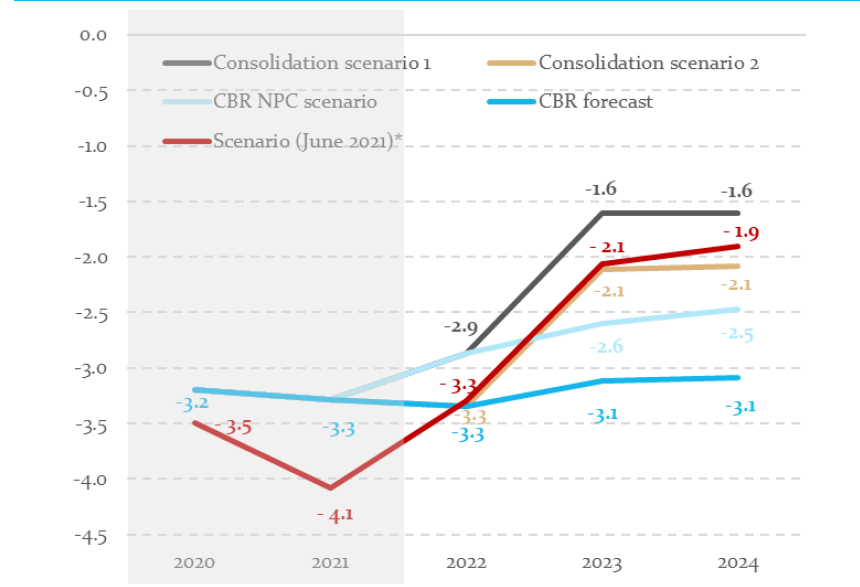As regards meeting the objectives under the Fiscal Responsibility Act, the government’s budget proposal fails to sufficiently capitalise on the favourable economic conditions to accelerate consolidation.

Evaluation of the General Government Budget Proposal for 2018-2020
- 15. 11. 2017


